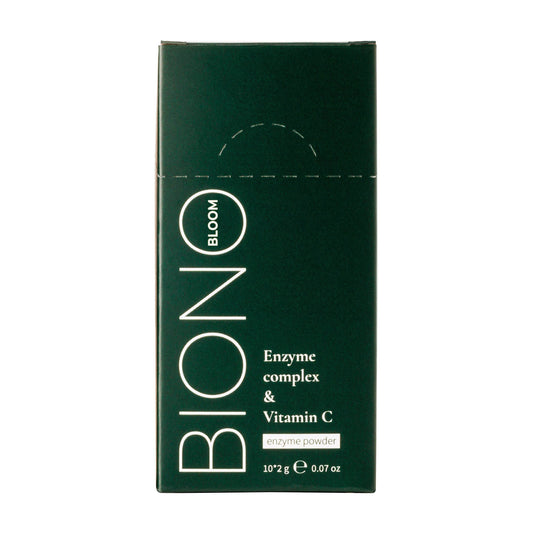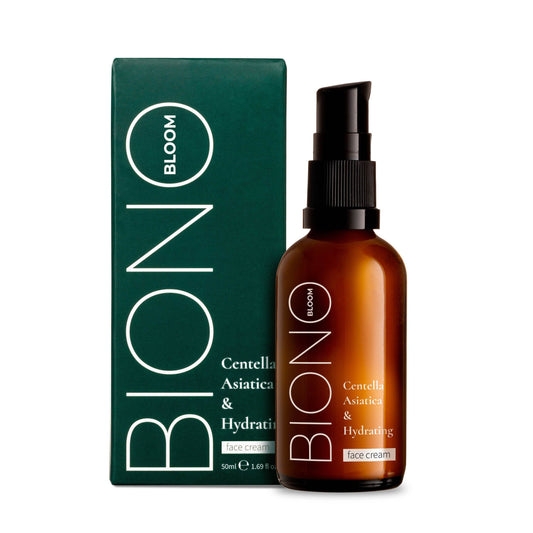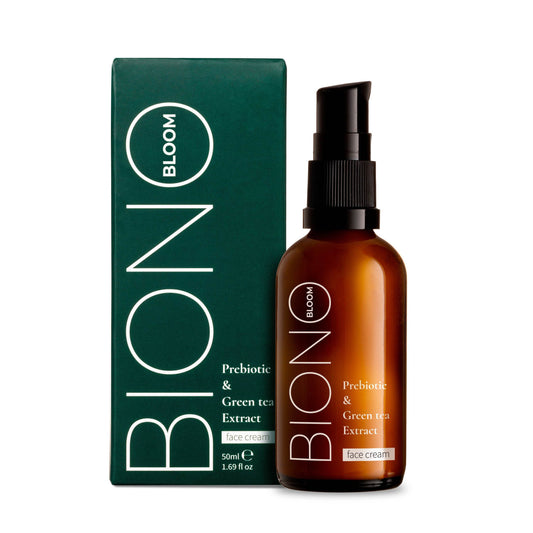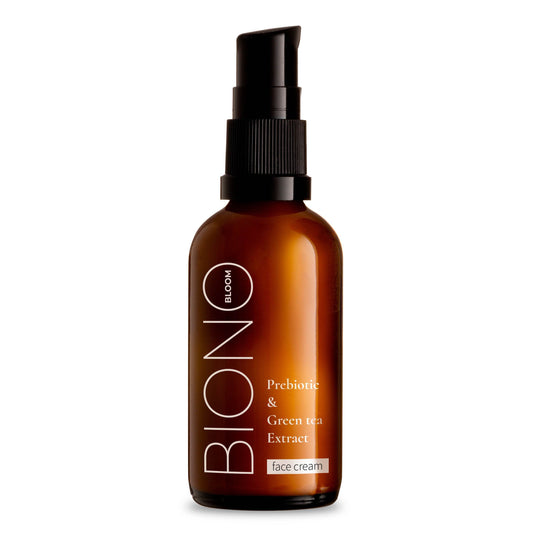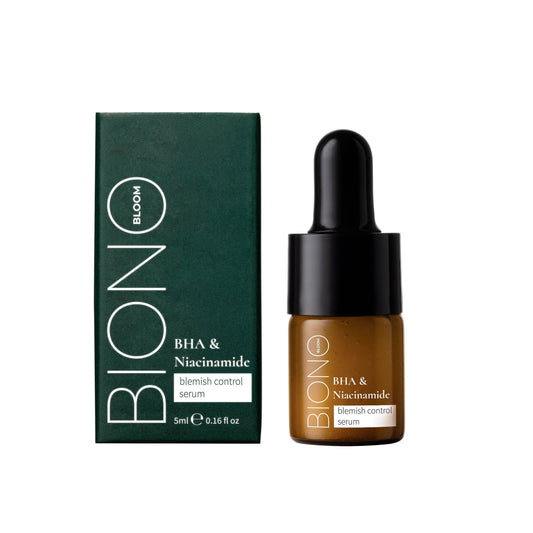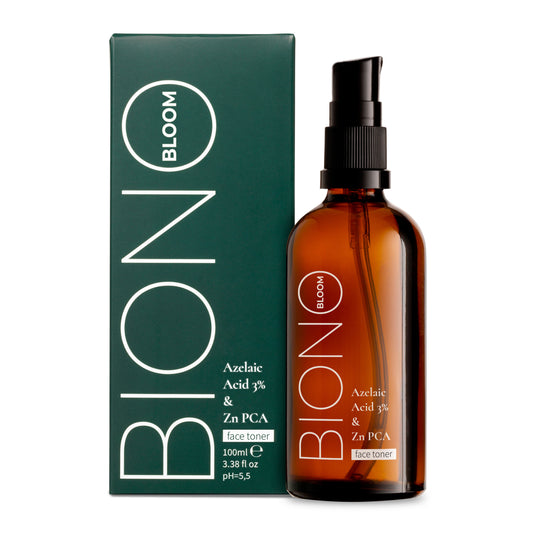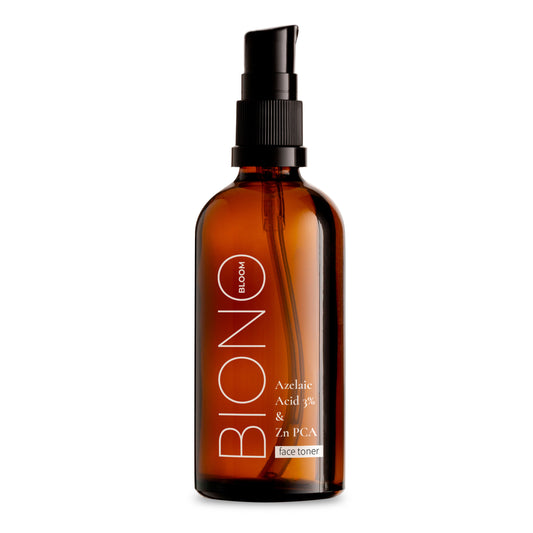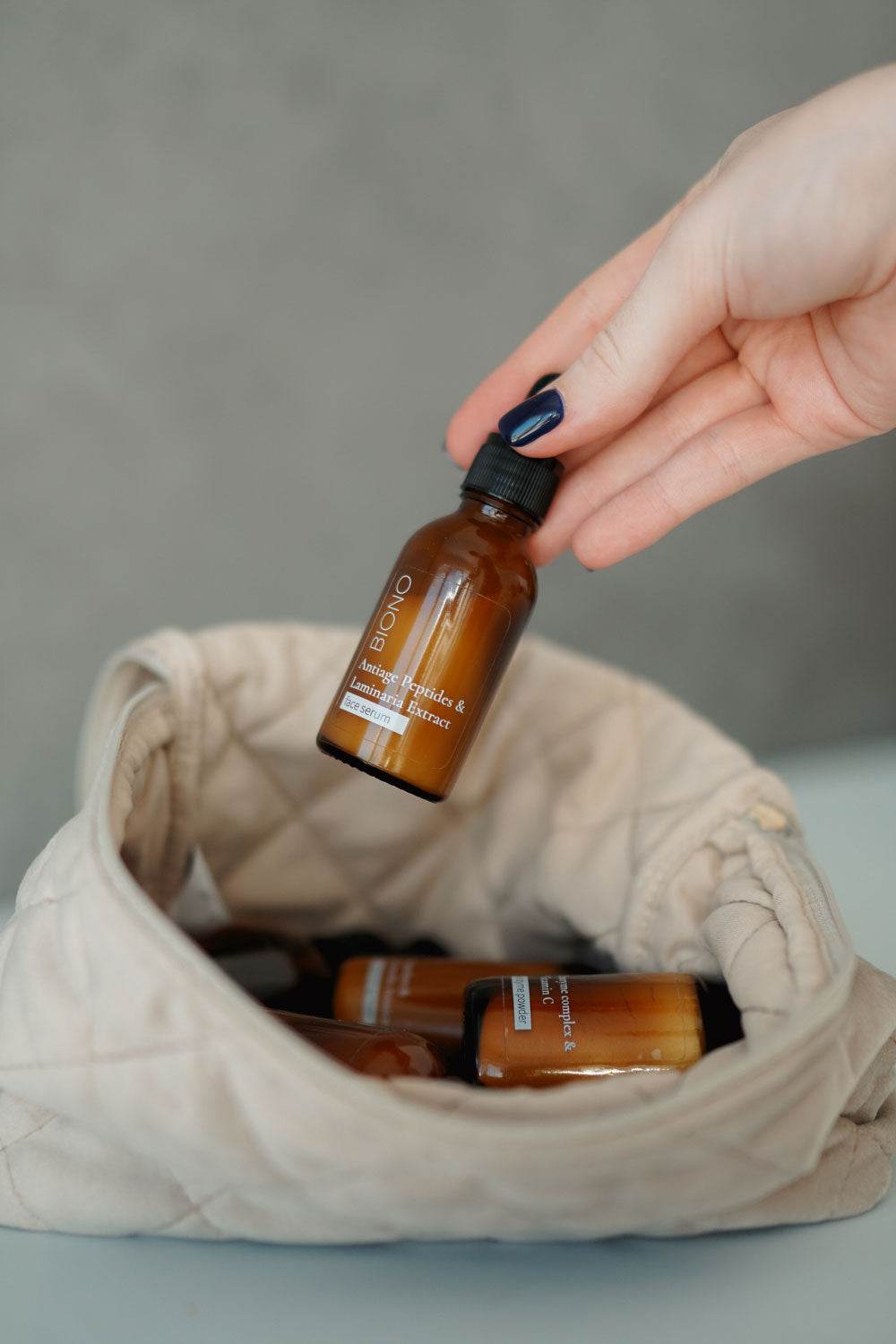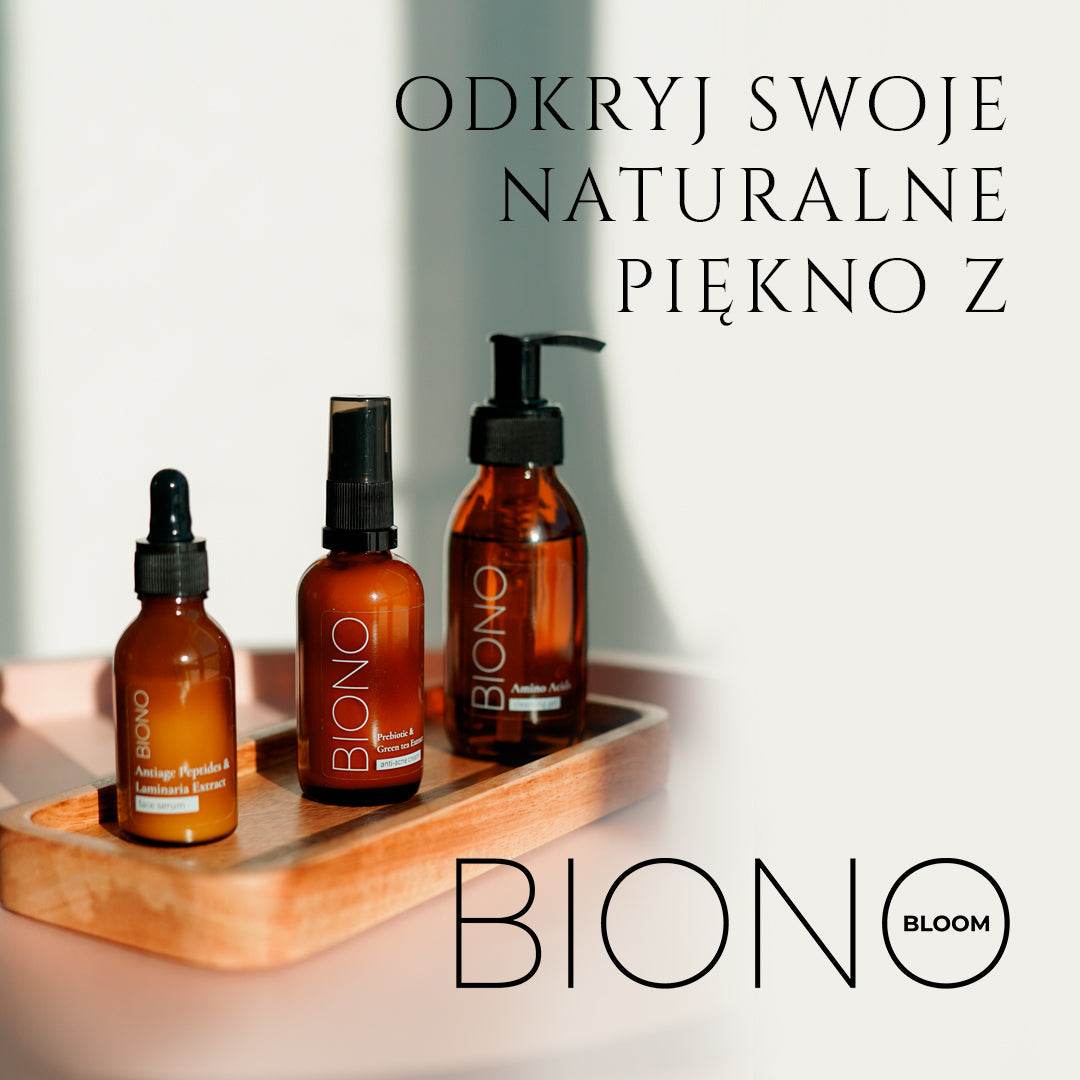
Natural facial care – effective methods and proven ingredients
Natural facial care is an increasingly popular trend that combines traditional knowledge with modern dermatological discoveries. Many people are seeking alternatives to synthetic cosmetics, wanting to reduce skin exposure to chemical ingredients and return to proven, plant-based solutions. But can natural skincare be as effective as professional cosmetics? Let's take an in-depth look at this method, exploring its benefits, limitations, and best practices.
What exactly is natural skin care?
Natural facial care is based on the use of ingredients of plant, mineral, or animal origin that have not been chemically modified or contain minimal synthetic ingredients. This approach recognizes that the skin responds best to substances close to its natural structure and that skincare processes should support, not interfere with, its natural functions. In practice, this means using plant oils, butters, herbal extracts, clays, and other ingredients known for generations.
However, it's important to understand that "natural" doesn't always mean "safe" or "effective." Some natural substances may be allergenic, irritating, or simply ineffective for a specific skin condition. On the other hand, many synthetic ingredients are perfectly tolerated and more stable than their natural counterparts. The key is an informed approach and understanding both the benefits and limitations of natural skincare.
Modern natural skincare encompasses not only grandmotherly recipes but also modern formulas utilizing extraction, distillation, and other processes that preserve the active ingredients of plants. Many natural cosmetics combine traditional knowledge with scientific research into the effectiveness of individual extracts. This combination allows natural facial care to be both pleasant and effective for various skin types.

Basic ingredients in natural facial care
Vegetable oils are the foundation of natural skincare. Each oil has a unique fatty acid composition and properties tailored to different skin needs. Argan oil, rich in vitamin E, is excellent for regenerating, jojoba oil most closely resembles the skin's natural sebum, and grapeseed oil is lightweight and non-comedogenic. Choosing the right oil depends on your skin type and the specific issues you're struggling with.
Plant butters such as shea, cocoa, and mango butter offer intense nourishment for dry and dehydrated skin. They contain a high concentration of fatty acids and unsaponifiables, which support the epidermal lipid barrier. They are especially valuable in winter care, when skin needs additional protection from frost and wind. They can be used on their own or as a base for creating your own creams.
The most important natural care ingredients:
- Squalane oil – imitates natural skin lipids, zero comedogenicity
- Aloe – intensively moisturizes, soothes irritations and inflammations
- Manuka honey – strong antibacterial properties, supports healing
- Rosehip oil – regenerates, brightens discolorations thanks to vitamin C
- Clay – cleanses, detoxifies, regulates sebum secretion
- Hydrolates – gently tone, moisturize, alcohol-free
- Evening primrose oil – supports regeneration, rich in omega-6 fatty acids
Natural facial cleansing – methods and ingredients
Cleansing is the foundation of any skincare routine, and natural methods offer effective and gentle solutions. Oil cleansing is based on the principle of solubility – oil dissolves sebum and impurities from the skin's surface without disrupting its natural barrier. Light oils such as grapeseed, almond, or sunflower oil work best. Simply massage the oil into dry skin, leave on for a minute, and then rinse with warm water or a damp cloth.
Natural cleansers also include plant-based flours and powders. Oat, rice, or chickpea flour mixed with water, hydrolate, or yogurt creates a gentle paste that mechanically cleanses the skin without causing irritation. These natural scrubs are much gentler than ready-made scrubs with harsh grains and are perfect for sensitive skin. They also provide vitamins and minerals that support skin health.
Honey is another versatile cleansing ingredient. It has antibacterial, moisturizing, and soothing properties. It can be used as a standalone cleanser—apply a thin layer to a damp face, gently massage, and rinse with warm water. Manuka honey is particularly valued for its high antibacterial activity, making it ideal for acne-prone skin. Regular cleansing with honey improves skin texture and gives it a healthy glow.

Toning and moisturizing naturally
Hydrosols, or floral waters distilled from essential oils, are excellent natural toners. They contain micro-amounts of essential oil and active plant ingredients, offering a gentle toning effect without alcohol. Rose hydrosol is versatile and soothing, chamomile hydrosol is anti-inflammatory for sensitive skin, lavender hydrosol is balancing for combination skin, and lemon balm hydrosol is regulating for oily skin. They can be used alone or as a base for mixing with other ingredients.
Aloe vera is a true treasure in natural facial care, offering intense hydration without weighing down the skin. Aloe vera gel contains over 200 active ingredients, including vitamins, minerals, amino acids, and enzymes. It deeply moisturizes, soothes irritations, accelerates healing, and supports regeneration. Pure gel directly from the plant or an organic product with a high aloe concentration (minimum 95%) works best. It can be used alone or as a base for blending with oils.
Hyaluronic acid in its natural form can be found in some plant extracts, but it's also available as a purified, naturally derived ingredient. Although it requires biotechnological processes, it comes from bacterial fermentation and is accepted in natural skincare. Serums with hyaluronic acid in various particle sizes provide multi-level hydration—large molecules act on the surface, while smaller ones penetrate deeper. This ingredient's effectiveness is difficult to match with natural alternatives.
Natural anti-aging active ingredients
Vitamin C is found naturally in sea buckthorn, acerola, rosehip, and citrus fruits. Rosehip oil contains not only vitamin C but also lycopene and beta-carotene, creating a complex with powerful antioxidant properties. Regular use of natural sources of vitamin C brightens discolorations, evens out skin tone, and supports collagen synthesis. However, it's important to remember that natural vitamin C is less stable than synthetic derivatives, so products should be stored in a dark, cool place.
Plant-based retinoids, or bakuchiol, are a natural alternative to synthetic retinol. Extracted from the seeds of the Indian babchi plant, it offers similar anti-aging benefits—reducing wrinkles, improving skin texture, and evening out skin tone—but without the typical side effects of retinol, such as irritation or photosensitivity. Studies show that bakuchiol can be as effective as retinol, especially for people with sensitive skin who cannot tolerate traditional retinoids.
Effective natural anti-aging ingredients:
- Bakuchiol – a plant-based retinoid without irritation, stimulates cell renewal
- Rosehip oil – high content of vitamin C and fatty acids
- Green tea extract – a strong antioxidant, protects against free radicals
- Pomegranate seed oil – supports collagen synthesis, regenerates
- Resveratrol from grapes – an antioxidant that slows down the aging process
- Chia seed oil – rich in omega-3, strengthens the skin barrier
- Honeysuckle extract – improves elasticity, reduces wrinkles

Masks and home treatments with natural ingredients
Fruit masks use natural fruit acids (AHAs) for gentle exfoliation. Papaya contains papain, while pineapple contains bromelain, enzymes that break down dead skin cells and stimulate cell renewal. Mash the fresh fruit, apply to cleansed skin for 10-15 minutes, and rinse thoroughly. These masks brighten, smooth, and add radiance to the skin. Yogurt and honey masks are better for sensitive skin—they soothe, moisturize, and gently cleanse thanks to lactic acid and enzymes.
This nighttime oil serum is an intensive regenerative treatment. Create your own blend tailored to your skin's needs: for dry skin, argan oil with shea butter and rosehip oil; for acne-prone skin, black cumin oil with green tea; and for mature skin, rosehip oil with vitamin E. A few drops massaged into damp skin before bed act as an intensive regenerative mask. In the morning, skin is soft, moisturized, and radiant.
Natural protection against the sun and external factors
Natural sun protection is a controversial topic. Some plant oils have a natural SPF, but it's very low – raspberry seed oil around 30-50, carrot seed oil 35-40, and shea butter 6-10. This is definitely not enough to provide effective UV protection. Zinc oxide and titanium dioxide are mineral physical filters accepted in natural skincare, mechanically reflecting the sun's rays. They are safe, do not penetrate the skin, and effectively protect against UVA and UVB rays.
Antioxidants are a natural "internal defense" against the harmful effects of sunlight and pollution. Vitamins C, E, green tea extract, resveratrol, and coenzyme Q10 neutralize free radicals produced by UV radiation and smog. Applying an antioxidant serum under sunscreen is the gold standard of protection – antioxidants support the sunscreen's effectiveness and repair any damage. It's like a double protective shield for your skin.
Protection against pollution requires strengthening the skin's barrier and regular cleansing. Ceramide-rich oils (hemp oil, evening primrose oil) strengthen the natural lipid barrier, hindering the penetration of toxins. A two-step evening cleanse—first with oil, then with a gentle foam—removes smog particles that have settled on the skin during the day. Regular weekly use of clay further detoxifies the skin, drawing impurities out of pores.
Natural care for different skin types
Dry skin needs intense hydration and nourishment. Heavier oils and butters are best—argan, avocado, shea, cocoa. Cleanse with oil instead of foam, apply creamy yogurt and honey masks, apply a serum with hyaluronic acid and aloe vera, and finish with an occlusive layer of oil or butter. Avoid drying ingredients like alcohol in toners or excessive clay use. Plant-based ceramides from wheat or soy also benefit dry skin, as they rebuild the lipid barrier.
Oily and acne-prone skin requires balancing, not drying. Paradoxically, over-cleansing will worsen the problem – the skin will produce even more sebum. Use light, non-comedogenic oils such as black cumin, green tea, or grape seed. Bentonite clay once a week, gentle fruit acids from papaya or pineapple, lemon balm or tea hydrolate. Manuka honey has strong antibacterial properties without drying out. Niacinamide (vitamin B3) regulates sebum production and reduces inflammation.
For sensitive skin, gentleness and simplicity are key. The shorter the ingredient list, the better—less chance of irritation. The best ingredients are:
- Borage oil – soothes, reduces redness
- Chamomile hydrolate – anti-inflammatory, soothing
- Aloe – moisturizes without weighing down, calms
- Squalane oil – hypoallergenic, does not cause any reactions
- Shea butter – nourishes without irritating
- Colloidal oatmeal – creates a protective layer, soothes itching
The limitations of natural care and when to reach for professional solutions
Natural facial care has its limits. Serious skin conditions like rosacea, severe acne vulgaris, psoriasis, or eczema require dermatological intervention and prescription medications. No natural remedies can replace antibiotics, prescription retinoids, or corticosteroids when medically indicated. Attempting to treat serious conditions solely with natural methods can worsen the condition and cause permanent damage.
Natural ingredients can also be unstable and less predictable than their synthetic counterparts. Vitamin C from natural sources oxidizes quickly, losing its effectiveness. Essential oils can be highly allergenic and photosensitizing. Some plant extracts contain hundreds of chemical compounds, some of which may cause reactions in sensitive individuals. The lack of standardization and quality control in natural products from different manufacturers means that effects can vary significantly.
The best approach is a hybrid strategy combining natural ingredients with scientifically proven synthetics. You can use natural oils for cleansing and moisturizing, but reach for synthetic retinoids for deep wrinkles. Use natural antioxidants, but don't skip mineral sunscreen. Use natural soothing masks, but if necessary, use dermatologist-prescribed medications. A conscious, non-ideological approach yields the best results and is most beneficial for skin health.
Creating your own natural skincare routine
Building a natural skincare routine should start with minimalism. Instead of buying dozens of products, focus on the basics: cleansing, toning, moisturizing, and protection. Choose one product for each step and test it for at least 2-3 weeks before making any further changes. This will allow you to observe how your skin reacts to individual ingredients and avoid overloading your skin with too many products at once.
Adapting to the seasons is key in natural skincare. In summer, opt for light, fresh ingredients—aloe vera, hydrolates, light oils, cucumber masks. In winter, you need more intense nourishment—heavier oils, butters, hyaluronic acid serums, and protective lipid barriers. Spring and autumn are a good time for gentle exfoliation and regenerative treatments, when the skin isn't exposed to extreme conditions.
Example daily natural routine:
- In the morning – cleansing with hydrolate or honey water
- Tonic – hydrolate adapted to the skin type
- Serum – aloe with a few drops of rosehip oil
- Protection – cream with mineral SPF filter
- In the evening – two-stage cleansing (oil + oatmeal foam)
- Tonic – rose or chamomile hydrolate
- Serum/oil – a blend of oils tailored to your needs
- Once a week – a clay or enzyme mask
Summary: wisely and consciously
Natural facial care can be effective, enjoyable, and safe if you approach it consciously and realistically. Natural ingredients offer many benefits – they are gentle, eco-friendly, often multifunctional, and pleasant to use. They are perfect for daily, maintenance skincare routines and as a complement to professional therapies. The key is choosing the right ingredients for your skin type and specific needs, rather than blindly following the "all-natural" trend.
However, remember the limitations – some problems require medical intervention, and natural doesn't always mean more effective or safer. The best results are achieved with a flexible, hybrid approach that combines the best of both worlds: natural ingredients where they are effective and pleasant, and scientifically proven synthetics where they are essential. Listen to your skin, observe its reactions, and don't be afraid to experiment within safe limits. Your skin is a unique ecosystem that deserves conscious, thoughtful, and individually tailored care.


